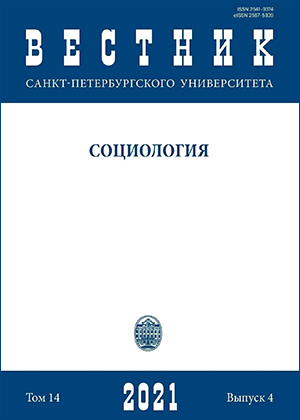The coronavirus challenge to modern anthropocentrism
DOI:
https://doi.org/10.21638/spbu12.2021.402Abstract
Following Goya’s painting “Duel with Cudgels” as metaphor, with which Michel Serres opens his book The Natural Contract, this article argues that the coronavirus pandemic, with its devastating impact on our lives, dismantles the modern anthropocentric framework. It thrusts us violently into a post-anthropocentric perspective, which dislocates the human from the center of being and invites us to understand human existence in relation to nonhuman others such as the planet, the environment, animals, and technologies. However, at this critical moment, instead of seeing the pandemic crisis as a wake-up call for a shift of focus from the anthropocentric to a post-anthropocentric perspective, the dominant ways of understanding it on public discourse keep framing it in anthropocentric terms. As this discusses, taking as an indicative case the first wave of the pandemic in Greece, from March to June 2020, what seems to be a common ground in the rhetoric of the media, politicians, and a significant part of scientists, is that more or less almost all of them share and uphold the dividing lines between human-nonhuman, society-nature, ideologically obsessed with human superiority despite evidence to the contrary. In this respect, the post-anthropocentric challenge due to the coronavirus pandemic seems to have been postponed until further notice. Thus, as we are stuck on the old anthropocentric business as usual, one of the fundamental issues of human societies in the 21st century, that being man’s fragile relationships with Planet Earth and other co-species, remains a blind spot, hindering appropriate action.
Keywords:
COVID-19, coronavirus pandemic, modern anthropocentrism, post-anthropocentrism, posthumanism, coronavirus public discourse
Downloads
References
References
Downloads
Published
How to Cite
Issue
Section
License
Articles of "Vestnik of Saint Petersburg University. Sociology" are open access distributed under the terms of the License Agreement with Saint Petersburg State University, which permits to the authors unrestricted distribution and self-archiving free of charge.




